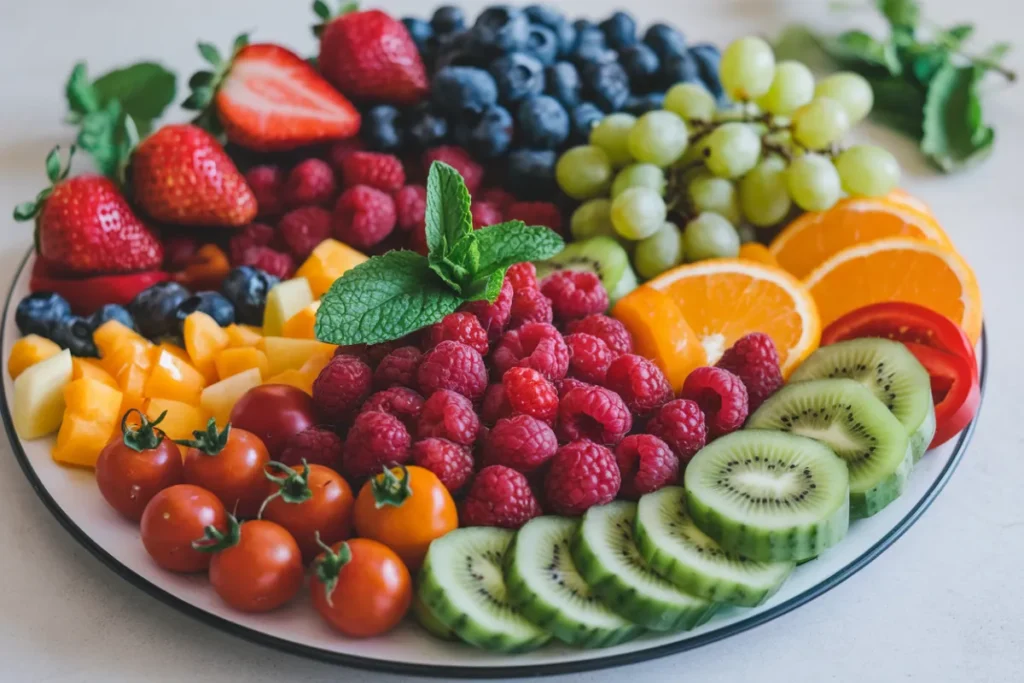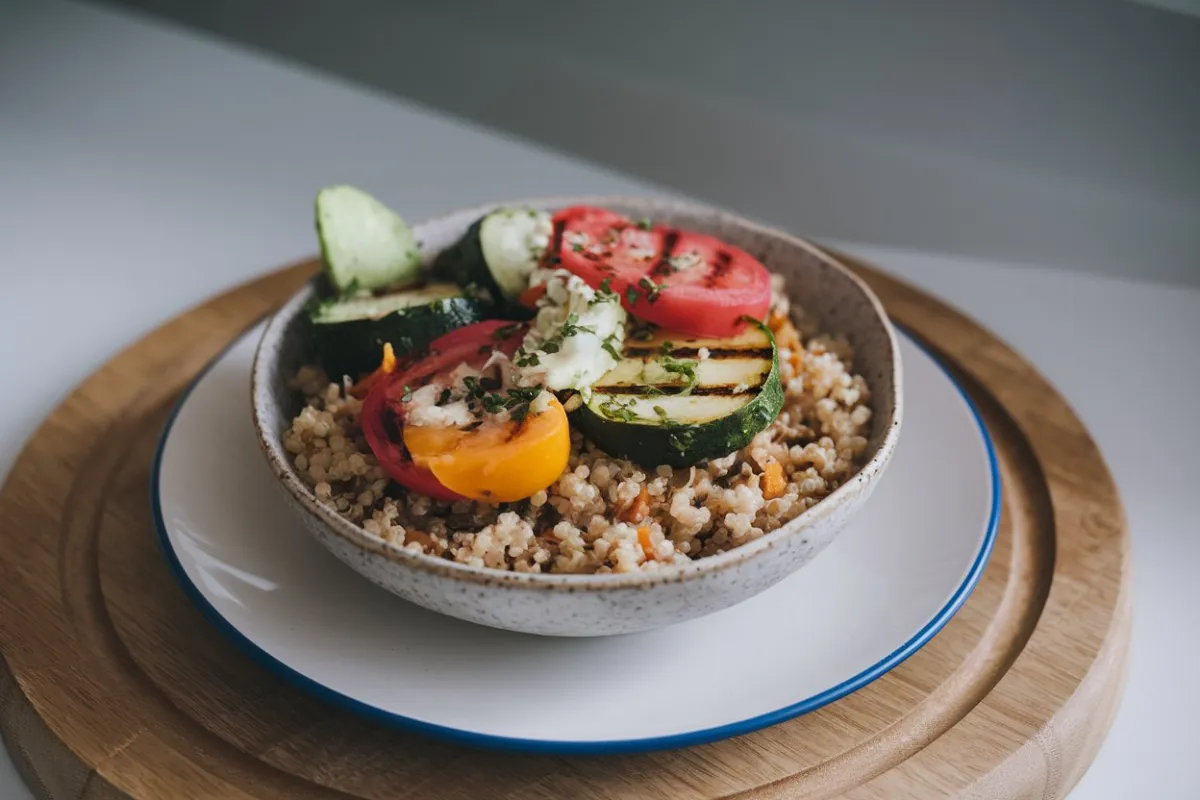Meal prepping has become an essential strategy for those seeking to save time, money, and effort while maintaining a healthy diet. With a little planning and preparation, meal prepping can help ensure you always have nutritious meals ready to go, reduce stress during busy days, and even help you stick to dietary goals. This guide will provide a comprehensive overview of the best foods for meal prepping, explain the different types of meal prep, share practical tips, and answer common questions to get you started on your meal-prepping journey. Let’s dive in!
Part 1: Introduction to Meal Prepping
Why Meal Prep? Understanding the Benefits
Meal prepping offers numerous benefits, from saving time and reducing food waste to promoting healthier eating habits. When you plan and prepare meals in advance, you’re less likely to reach for unhealthy, quick options. For those new to the concept, the Beginner’s Guide to Meal Prepping from Budget Bytes is a great resource to start with.
Health Benefits
- Nutritional Control: Meal prepping allows you to have complete control over the ingredients, portion sizes, and overall balance of your meals. This can be particularly beneficial for those with specific dietary requirements or health goals.
- Portion Management: With pre-measured portions, meal prepping can help prevent overeating and support weight loss or maintenance by ensuring that each meal contains the right amount of calories and nutrients.
Financial Benefits
- Cost-Saving: Buying ingredients in bulk and preparing meals ahead of time reduces the need to eat out, resulting in significant cost savings over time.
- Less Food Waste: When you plan meals ahead, you only purchase the ingredients you need, which helps to minimize food waste.
Time-Saving Benefits
- Reduced Cooking Time: Preparing meals for the week in one or two sessions frees up valuable time during busy weekdays.
- Efficient Meal Management: Having meals ready to go eliminates the daily decision-making about “what’s for dinner?” and reduces stress.
For a wide range of recipes and ideas on what to prep, you might want to explore the Meal Prep Recipes from BBC Good Food.
Different Types of Meal Prepping
Understanding the types of meal prepping can help you choose the one that best fits your lifestyle and preferences. Here are the main types:
- Batch Cooking: Cooking large quantities of a single dish to be consumed over several days.
- Ingredient Prep: Preparing ingredients (like chopped vegetables or cooked grains) to use in multiple recipes.
- Pre-portioning and Freezing: Preparing meals in advance and storing them in portions in the freezer.
- Ready-to-Eat Meals: Fully cooked meals stored in containers, ready to heat and eat.
Each of these methods can be adapted to fit different lifestyles, whether you prefer a grab-and-go approach or enjoy more elaborate dishes that require a bit of reheating.
Part 2: Best Foods for Meal Prepping
When it comes to meal prepping, not all foods are created equal. Some ingredients maintain their texture, flavor, and nutritional value better than others over time. Below is a breakdown of the best foods to include in your meal prepping.
Proteins Ideal for Meal Prepping
Protein is a critical component of any diet, providing energy and essential nutrients. Here are some proteins that work well for meal prep:
- Chicken: Versatile and affordable, chicken can be grilled, baked, or shredded. It’s a popular choice for meal prepping as it stays fresh in the refrigerator for up to four days and can be frozen for longer storage.
- Meal Prep Tip: Cook chicken breasts in bulk and season with a variety of spices or marinades to add variety to your meals.
- Fish: Options like salmon, cod, and tilapia are rich in omega-3 fatty acids and can be baked or grilled in advance. They are best consumed within three days when refrigerated.
- Meal Prep Tip: Pair fish with robust flavors like lemon, garlic, or herbs to maintain freshness and taste.
- Plant-Based Proteins: Tofu, tempeh, beans, and lentils are excellent sources of protein that hold up well over several days and provide a great alternative for vegetarians and vegans.
- Meal Prep Tip: Marinate tofu or tempeh to enhance flavor, and consider using beans and lentils in soups, stews, or salads.
- Eggs and Dairy: Hard-boiled eggs are easy to prepare in bulk, and Greek yogurt serves as a versatile base for breakfast or snacks.
- Meal Prep Tip: Boil a dozen eggs at once and store them in the refrigerator for a quick protein boost.
Vegetables Suitable for Meal Prepping

Vegetables are a staple in any healthy diet, and many of them are perfect for meal prep due to their nutrient density and versatility:
- Leafy Greens: Spinach, kale, and arugula can be sautéed or added raw to salads, while they remain fresh and nutritious.
- Meal Prep Tip: Store leafy greens separately from dressings to prevent wilting.
- Cruciferous Vegetables: Broccoli, cauliflower, Brussels sprouts, and cabbage retain their texture and nutrients when steamed or roasted. They are great for stir-fries, salads, and side dishes.
- Meal Prep Tip: Roast or steam a large batch and store in airtight containers for up to five days.
- Root Vegetables: Sweet potatoes, carrots, and beets can be roasted in batches and used in salads or as side dishes.
- Meal Prep Tip: Peel and chop these vegetables in advance to save time; roast with olive oil, salt, and pepper for a simple, delicious dish.
- Freezable Vegetables: Bell peppers, onions, zucchini, and mushrooms can be chopped, portioned, and stored in the freezer for easy access.
- Meal Prep Tip: Freeze vegetables in portions that are ready to use in stir-fries, soups, or casseroles.
Whole Grains and Carbohydrates for Meal Prep
Whole grains are a great source of fiber, vitamins, and minerals. They are also easy to prepare in large quantities:
- Quinoa, Brown Rice, and Barley: These grains are perfect for bulking up meals and can be stored in the fridge for up to a week.
- Meal Prep Tip: Cook a large batch of grains and divide them into individual servings. They can be easily reheated and added to meals.
- Oats and Pasta: Whole wheat or gluten-free pasta can be cooked and portioned in advance, while oats make for a quick breakfast option.
- Meal Prep Tip: Overnight oats are a great meal-prep option for breakfast; prepare them in jars with different toppings for variety.
- Starchy Vegetables: Sweet potatoes, squash, and other root vegetables are great for meal prepping, as they maintain their flavor and texture well.
- Meal Prep Tip: Roast or mash these vegetables for a nutritious side dish that can be paired with proteins or grains.
Fruits that Hold Up Well in Meal Preps
While some fruits may spoil quickly, several types are perfect for meal prepping:
- Apples, Berries, and Citrus Fruits: These fruits are versatile, stay fresh for several days, and are great for snacks or breakfast.
- Meal Prep Tip: Store sliced apples in water with a bit of lemon juice to prevent browning. Berries should be rinsed and dried thoroughly before storing.
- Frozen Fruits: Frozen berries, mangoes, and other fruits can be a great addition to smoothies or desserts.
- Meal Prep Tip: Keep a variety of frozen fruits in your freezer to quickly blend into smoothies or use in baking.
- Tips for Storing Fruits: To prevent browning, consider using lemon juice on fruits like apples or bananas.
Healthy Fats for Meal Prepping
Including healthy fats in your diet is essential for overall health:
- Nuts and Seeds: Almonds, chia seeds, and flaxseeds are easy to portion and store, providing a quick and healthy addition to meals.
- Meal Prep Tip: Add nuts and seeds to salads, yogurt, or oatmeal for an extra boost of nutrients.
- Avocados and Olive Oil: These fats are great for salads or dressings, but be mindful of storage to prevent spoilage.
- Meal Prep Tip: Store avocados with a bit of lemon juice to prevent browning, or keep them in a tightly sealed container.
Part 3: Tips, Tricks, and Common Mistakes in Meal Prepping
Whether you’re a beginner or a seasoned meal prepper, these tips can help you maximize efficiency and minimize waste.
Meal Prep Tips for Beginners
- Start Simple: Begin with easy recipes that you are familiar with, and gradually add more complex dishes as you gain confidence.
- Choose the Right Containers: Invest in high-quality, airtight containers to keep food fresh. Glass containers are ideal as they don’t absorb odors and are microwave-safe.
- Use Basic Equipment: Have essential kitchen tools like a sharp knife, cutting board, and meal prep containers.
Common Mistakes to Avoid in Meal Prepping
- Overcooking or Undercooking Food: To avoid texture issues, cook your meals slightly underdone if you plan to reheat them throughout the week.
- Storing Food Incorrectly: Proper storage is key to keeping food fresh. Use airtight containers and store food in the refrigerator or freezer as needed.
- Not Balancing Nutrients: Make sure your meals have a balance of proteins, carbs, and fats to ensure a well-rounded diet.
Advanced Meal Prep Techniques
- Incorporate Variety: Use different cooking methods like roasting, grilling, and steaming to add variety to your meals.
- Use Fresh and Seasonal Ingredients: Incorporate fresh produce to maintain nutritional value and flavor.
- Experiment with Spices and Herbs: Flavor your meals with different herbs and spices to keep things interesting.
Part 4: FAQ Section
How long does meal-prepped food last?
Meal-prepped foods typically last 3-5 days in the refrigerator. It’s essential to store them in airtight containers to maintain freshness.
Can you freeze all meal-prepped foods?
Not all foods freeze well. Items like soups, stews, and casseroles tend to freeze well, while dishes with high water content (like salads) may not.
What are the best containers for meal prepping?
Glass or BPA-free plastic containers with airtight lids are ideal for meal prepping. They are durable, easy to clean, and maintain the freshness of the food.
How do I prevent my meal prep from getting soggy?
Separate sauces and dressings from the main ingredients, especially for salads, to keep everything fresh and crisp.
What are the most popular meal prep ingredients?
Popular ingredients for meal prepping include chicken, fish, quinoa, brown rice, leafy greens, root vegetables, nuts, seeds, and fresh fruits.
How can I keep meal-prepped food from getting boring?
Incorporate a variety of spices, herbs, and seasonings to change the flavor profile of your dishes. Rotate your ingredients and experiment with new recipes each week.
Part 5: Conclusion and Additional Resources
Meal prepping can transform your approach to healthy eating, saving time, money, and effort. By choosing the right foods and following the tips provided, you can enjoy nutritious, delicious meals throughout the week. Don’t be afraid to experiment and find the methods that work best for you. For more inspiration, check out the Meal Prep Recipes from BBC Good Food and Fit Men Cook’s Guide on How to Start Meal Prepping.
By implementing these strategies, you’ll be on your way to becoming a meal-prepping expert in no time!

